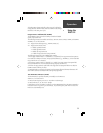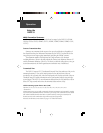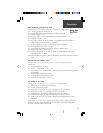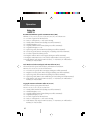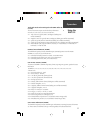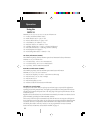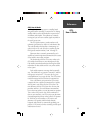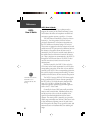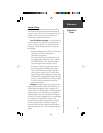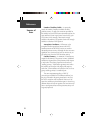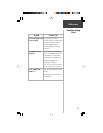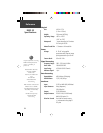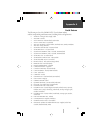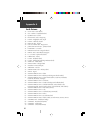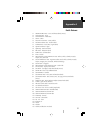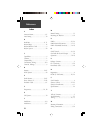
21
Sources of Error
Using a DGPS Beacon Receiver with your existing
GPS Receiver can provide substantial improvements in
accuracy; however, there may be occasions when the best
possible accuracy will not occur. Several factors can
contribute to a degraded DGPS accuracy.
Loss of DGPS Beacon Signal— Obviously, the lack
of DGPS correction data will result in reduced accuracy.
Accuracy will be the same as if no beacon receiver was
being used. Several conditions can cause a loss of the
beacon signal:
• Poor data exchange between DGPS receiver and the
GPS receiver can result in intermittent or
nonexistent correction data.
• The range of a DGPS beacon transmitter (see the
accompanying Beacon Reference Card) is typically
a few hundred miles, or less. Beyond this range,
the beacon signal cannot be reliably received.
• Interference to the beacon signal can be experi-
enced during periods of thunderstorm activity.
Other sources of interference, such as alternator
motors, ignition systems and VHF, can also affect
signal reception. Alternator/ignition interference can
be minimized through proper shielding of the ship’s
wiring, by using an EMI/RFI filter, and by mounting
the beacon receiver’s antenna away from these
sources of interference.
Multipath— Multipath error occurs when the GPS
signal is reflected before it reaches the GPS receiver. The
reflected signal takes slightly longer to reach the GPS
receiver than a non-reflected signal. This added time delay
results in position error. (The distance to each satellite is
calculated based upon the time it takes the GPS signal to
reach the GPS receiver.) Multipath error can be minimized
by mounting the GPS antenna at a location which
minimizes the potential for reflected signals. Generally,
the GPS antenna should be mounted on a large, flat
horizontal surface and away from any vertical structure
(cabin walls, large mast, etc.) which could reflect the GPS
signal.
Sources of
Error
Reference



